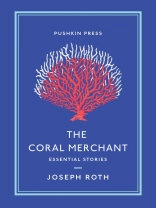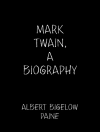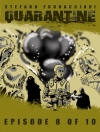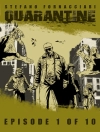New translations of the greatest short stories by Joseph Roth, collected in a beautiful edition
Joseph Roth’s sensibility – both clear-eyed and nostalgic, harshly realistic and tenderly humane – produced some of the most distinctive fiction of the twentieth century. This selection of his finest shorter work, in exquisite new translations by Ruth Martin, showcases Roth’s peerless skill as an observer of social discord and individual frailty.
A coral merchant, longing for the sea, chooses to adulterate his wares with false corla, with catastrophic results; young Fini, just entering the haze of early sexuality, falls into an unsatisfying relationship with an older musician. In prose of fluid beauty and wry precision, Roth shows us isolated souls pursuing lost ideals in the Austro-Hungarian empire’s dying days.
JOSEPH ROTH was born into a Jewish family in the small town of Brody in the former Austro-Hungarian Empire. He studied first in Lemberg and then in Vienna, and served in the Austrian army during the first World War. He later worked a a journalist in Vienna and Berlin, travelling widely, staying in hotels and living out of suitcases while also being a prolific writer of fiction, including the novels Job (1930) and The Radetsky March (1932). Roth left Germany when Hitler came to power in 1933 and settled in Paris. He collapsed at the Café Touron in May 1939 and died shortly after.
Over de auteur
Joseph Roth was born into a Jewish family in the small town of Brody in the former Austro-Hungarian Empire. He studied first in Lemberg and then in Vienna, and served in the Austrian army during World War I. He later worked as a journalist in Vienna and Berlin, travelling widely, staying in hotels and living out of suitcases, while also being a prolific writer of fiction, including the novels Job (1930) and The Radetzky March (1932). Roth left Germany when Hitler came to power in 1933 and settled in Paris, where he died in 1939.












